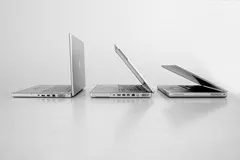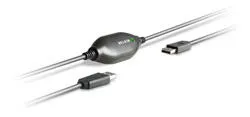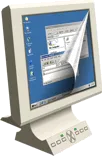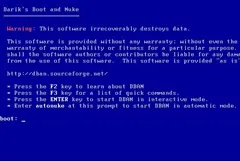 So you’ve finally decided to upgrade and purchase a new computer.
So you’ve finally decided to upgrade and purchase a new computer.
You’ll soon get rid of that old computer in favor of a brand new desktop or laptop computer with the fastest processor, lots of RAM and hundreds of gigs of storage.
Everyone in the family is excited about the new computer except for mom – she isn’t sure where to keep that old PC as the store room is already crowded and there’s no storage space available in any of the overhead shelves.
You therefore decide to sell that used computer on eBay and if that doesn’t work out (resale prices of second hand computers can be dismally low), you’ll donate it to a school or charity organization that will pass on the machine to someone in need.
Related: Things You Can Do with the Old Computer
Excellent decision but before you dispose the old computer, there are some very important points to take note of – all your important (and sometimes confidential) data like Office documents, family pictures, videos, emails, MP3 audio collection, internet bookmarks, software programs, address book, etc. are still residing on its hard drive.
 You would therefore want to transfer all such data from the old computer to the new one and then also ensure (as a security measure) that you have erased everything off the old computer’s hard drive.
You would therefore want to transfer all such data from the old computer to the new one and then also ensure (as a security measure) that you have erased everything off the old computer’s hard drive.
Migrate data from old to new computer – Once your new computer is up and running, you can bring the data from the old system to the new one through a USB data transfer cable – they are cheap and easily available at any computer accessories store.
Another option is burn data from old system onto one or more DVD (or CD ROM) disks. I generally put all the required data inside the My Documents folder and burn it to DVD(s).
You can then create a report of all software programs installed on the old computer using a free utility called Belarc Advisor (review of Belarc) – this helps when you want to maintain a consistent computing environment and don’t want to miss using any of these useful utilities that were on the old system.
Related: Backup Your Software License Keys
 To migrate all your internet bookmarks, open the web browser (like IE or Firefox) and export favorites to an HTML file. Firefox users can try the Google Browser Sync extension (Browser Sync review) to save bookmarks and even passwords. If you use a desktop email client like Microsoft Outlook, Eudora or Thunderbird, export all the emails, contacts and calendar to a file and put in the backup folder.
To migrate all your internet bookmarks, open the web browser (like IE or Firefox) and export favorites to an HTML file. Firefox users can try the Google Browser Sync extension (Browser Sync review) to save bookmarks and even passwords. If you use a desktop email client like Microsoft Outlook, Eudora or Thunderbird, export all the emails, contacts and calendar to a file and put in the backup folder.
Also remember to transfer any fonts (file like .ttf) that you may have purchased and downloaded from the Internet. If you use an offline RSS reader like FeedDemon (FeedDemon review), export your RSS reading list as an OPML file else you’ll lose the subscriptions.
And if you share the habit of saving everything on the Windows Desktop, do remember to copy the desktop folder in My Documents because you’ll surely need them in the new PC.
Post-data transfer - Once you have moved all this data to the new computer via DVDs or an Ethernet cross over cable or the USB data transfer cable, don’t call eBay or charity yet. Keep the old PC in your possession for some more time until you are confident that everything you may need from the old computer is now available in the new system.
Related: Synchronize Files, Folders across Computers
And when it’s time to sell or donate, it is must that you spend some time cleaning the old system – I don’t mean wiping dust off the monitor or the keyboard coffee stains, it’s about cleaning your personal information from the computer’s hard drive – that includes information like your medical records, honeymoon pictures, credit card statements, emails, web browsing history, confidential documents, etc.
 Simply erasing stuff by hitting the delete key (or emptying the recycle bin) won’t delete your data permanently from the hard drive – it could still exist on the hard drive and experts (or hackers) will have no problems recovering (also called undelete) those private files.
Simply erasing stuff by hitting the delete key (or emptying the recycle bin) won’t delete your data permanently from the hard drive – it could still exist on the hard drive and experts (or hackers) will have no problems recovering (also called undelete) those private files.
If you skip this step, you are indirectly exposing yourself to the risk of identity theft. Fortunately, there are some excellent tools that can help wipe everything off your hard-disk (so data cannot be recovered) and one such popular utility is Darik’s Boot and Nuke available at Sourceforge.
This program installs on a Floppy disk or a USB drive or you burn it into a CD. When you are ready to say goodbye to the old computer, put the Darik’s Boot and Nuke floppy (or CD) into the computer and change the boot order of the computer to make CD or Floppy drive first in the boot order. Restart and every bit of data on the old machine will be gone forever.
Before donating the computer, you can install a copy of Ubuntu Linux but if your old computer came bundled with an OEM license (say it came pre-installed with Windows XP and other software like Nero, Norton Antivirus, etc), it’s a good idea to reinstall the OS using the disk that came with the system.
OEM licenses are only valid when used on the original OEM machine on which it was first installed so the license will go waste if you donate the computer without installing the OS.
Related: Free Hard Disk Cloning Software


